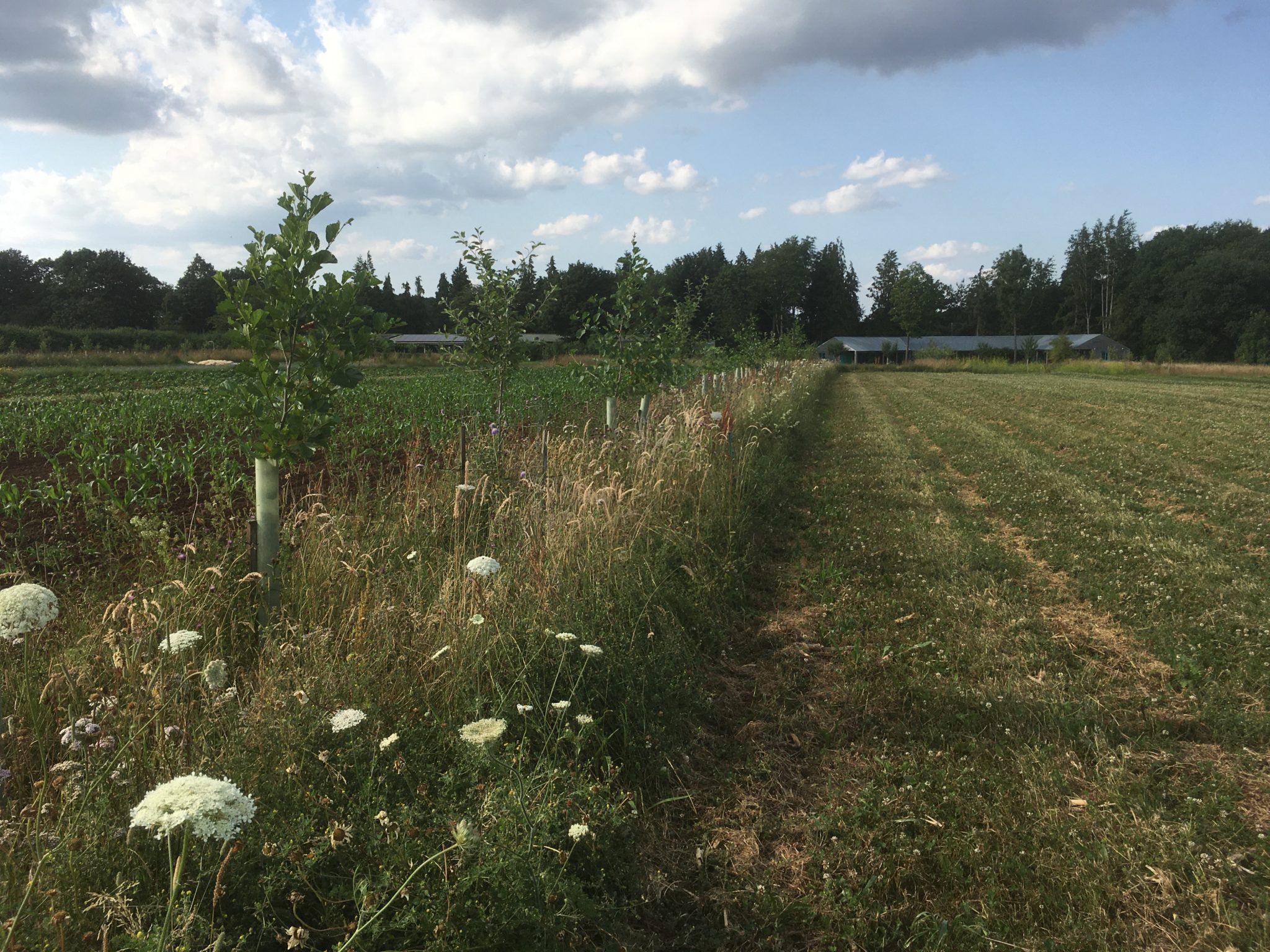The past week’s 35mm of rain has been mercifully gentle. It has all been sucked down by our parched soil, although, on drier fields, it will take as much again to join up with the moisture held at depth. We would have liked much more, but are grateful to have avoided the calamitous downpours that so often mark the end of a drought, and risk washing the dry soil away.
The rain came too late for some crops, and many of our young hazel trees (planted as part of an agroforestry project over the last two winters) have dropped their leaves. Most will survive and push out new growth next year, but they have had a hard start, following a caterpillar attack earlier this summer. Observing the hazels’ wild cousins, sheltered in woods and hedgerows, I realised that standing alone five metres apart, exposed to drying winds, is very different to their wild habitat.
Those we planted in protected corners and in deeper, damper soil have been happier; perhaps they also need the helping hand of irrigation in their early years. Our walnut trees have fared much better. Even those in thin soil and exposed sites are doing well, and some are even bearing a few nuts.
One problem is the local voles – despite the predation of increasing numbers of buzzards, kestrels, barn owls, sparrow hawks, and recently a pair of peregrine falcons. The voles love the trees, finding shelter under the weed-suppressing mats and mulches we put at their bases, and have felled a few by stripping bark at or below ground level.
As with any new crop or enterprise, we have much to learn – that’s part of the fun. I am not deterred; I just wish I had started earlier. Breaking new ground always requires pig-headed determination, alongside a humble willingness to observe and acknowledge mistakes.
Money also helps. Until we are confident of both the practicalities and the economics of nut agroforestry, we hope to continue to finance the planting of trees through our Refer a Friend scheme. If you refer a friend who becomes a Riverford customer, we will plant a nut tree (on our own and other organic farms), and undertake to look after it. Trees boost biodiversity, add food security, sequester carbon, and improve soil health. We will also give you each £15 to say thank you. The only losers are the tech giants to whom we would have paid marketing fees to reach that new customer, if you hadn’t referred them.
If you’d like to find out more about referring a friend, visit riverford.co.uk/refer.
More on agroforestry:















Hazel is a light-demanding plant and develops naturally in open ground – shade suppresses flowering and nut-set, so enclosed woodlands are not the ‘natural habitat’ at all but the places where people want them to be. So planting out in the open is exactly what nature does, with the help of squirrels. Hazel is also native to the Temperate zone and so intolerant of prolonged hot dry ‘Mediterranean’ weather. So your open-grown hazels are suffering from the drought because they prefer our former milder humid climate.